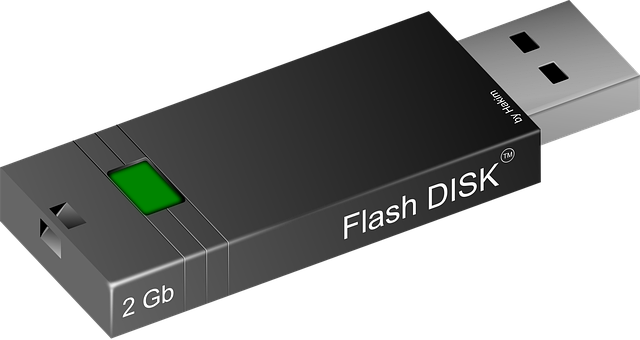Cloud backup accounting is a vital tool for modern accounting firms, offering robust data protection, disaster recovery, and seamless access to financial information. By leveraging hybrid cloud approaches with dedicated CPA tools, firms can enhance security, flexibility, and compliance while ensuring business continuity. Key features like multi-factor authentication, automated encryption, regular backups, and redundant servers safeguard sensitive data from loss, cyberattacks, or natural disasters. Reputable cloud service providers like AWS, Google Cloud, and Microsoft Azure provide scalable, cost-effective solutions tailored to accounting firms' unique needs. As digital operations become the norm, cloud backup is essential for maintaining competitiveness, regulatory compliance, and advanced, secure services.
“Cloud infrastructure and software integration is transforming the way accounting firms manage their data. This article explores the benefits of embracing cloud technologies, focusing on cloud backup as a cornerstone for secure data protection. We delve into the key features of efficient cloud backup systems tailored to accounting needs, highlighting software solutions that streamline data management. Additionally, we provide a comprehensive guide to implementing cloud infrastructure and offer insights into future trends shaping the cloud computing landscape for accounting professionals.”
- Understanding Cloud Backup for Accounting Firms
- Benefits of Cloud Integration in Accounting
- Key Features of a Secure Cloud Backup System
- Software Solutions for Seamless Cloud Data Management
- Implementing Cloud Infrastructure: A Step-by-Step Guide
- Future Trends in Cloud Computing for Accounting
Understanding Cloud Backup for Accounting Firms

Cloud backup is an essential component of modern cloud infrastructure for accounting firms. It ensures that financial data, which is often highly sensitive and critical, is protected from loss or corruption. By leveraging cloud storage solutions, firms can remotely back up their records in secure, off-site locations, enhancing disaster recovery capabilities. This strategy enables quick restoration of data in the event of a system failure or cyberattack, ensuring business continuity.
For accounting professionals, implementing a hybrid cloud approach with dedicated CPA tools can optimize digital workspaces. Cloud migration to a hybrid model allows for seamless integration of on-premises resources with remote cloud services, enhancing security and flexibility. This strategy ensures that firms stay compliant with data protection regulations while reaping the benefits of scalable and efficient data management.
Benefits of Cloud Integration in Accounting

Cloud integration offers significant advantages for accounting firms looking to modernize their operations. One of the key benefits is enhanced data security through robust cloud backup accounting solutions. By storing financial records and sensitive client information in secure cloud environments, firms can ensure data redundancy and easy recovery in case of disasters or cyberattacks, which are growing concerns in today’s digital landscape. This peace of mind allows accountants to focus on core activities without worrying about data loss.
Moreover, cloud migration accounting streamlines processes by enabling seamless access to financial data from anywhere at any time. Multi-factor authentication cloud security measures ensure that only authorized personnel can view and manipulate this data, further safeguarding it from unauthorized access. Additionally, Software as a Service (SaaS) for CPAs offers scalable, cost-effective solutions tailored to meet the unique needs of accounting practices, allowing them to adapt quickly to changing business demands without the need for extensive in-house IT management.
Key Features of a Secure Cloud Backup System

In today’s digital era, cloud backup systems are essential for accounting firms looking to safeguard their sensitive financial data and ensure business continuity. A robust cloud backup solution offers several key features that enhance security and peace of mind. Firstly, it implements strong multi-factor authentication (MFA) protocols to verify user identity, protecting against unauthorized access. This is especially crucial for virtual office CPAs and CPA cloud consulting firms where remote work is prevalent.
Additionally, a reliable system provides automated and secure data encryption both in transit and at rest, safeguarding information from potential breaches or accidental exposure. Regular backups with retention policies ensure that historical financial records remain intact. Moreover, off-site storage and redundant backup servers mitigate risks associated with natural disasters or hardware failures, ensuring quick recovery without disrupting accounting operations. These measures collectively contribute to a secure cloud backup environment for accounting firms’ digital assets.
Software Solutions for Seamless Cloud Data Management

Cloud backup for accounting firms is no longer an option but a necessity. By implementing robust software solutions, CPAs can ensure seamless management of their financial data in the cloud. These tools offer automatic synchronization, secure encryption, and real-time access, eliminating manual data transfer and reducing human error. With cloud backup, accounting firms can rest assured that their critical information is protected from cyber threats and natural disasters, ensuring business continuity.
A hybrid cloud CPA approach combines on-premises infrastructure with cloud services, providing an efficient digital workspace for financial management. This integration allows for scalable storage, quick recovery of data, and enhanced collaboration among team members. As accounting firms transition to more digital operations, leveraging the financial data cloud becomes crucial for maintaining competitiveness, ensuring regulatory compliance, and offering clients advanced, secure services.
Implementing Cloud Infrastructure: A Step-by-Step Guide

Implementing Cloud Infrastructure: A Step-by-Step Guide for Accounting Firms
1. Assess Current Setup and Needs: Begin by evaluating your accounting firm’s current infrastructure, software, and data storage systems. Identify pain points, such as outdated technology or manual processes, to understand the gaps that cloud integration aims to fill. Define specific goals like improved accessibility, enhanced security, and better cost management for your cloud backup accounting solutions.
2. Choose a Cloud Service Provider: Select a reputable cloud service provider that aligns with your firm’s requirements. Look for providers offering robust data storage, secure transactions, and reliable cloud backup for accounting software. Features like automatic synchronization, version control, and disaster recovery options are essential. Popular choices include AWS (Amazon Web Services), Google Cloud, and Microsoft Azure, which all provide tailored solutions for creating a virtual office CPAs environment or implementing SaaS for CPAs. Ensure the provider offers scalability to accommodate your firm’s growth.
Future Trends in Cloud Computing for Accounting

The future of cloud computing in accounting promises exciting advancements that will further streamline operations and enhance security. One prominent trend is the increased adoption of real-time data sync accounting, enabling CPAs to access up-to-date financial information from anywhere at any time. This shift towards mobile and remote work means secure cloud backup accounting will be paramount, with firms prioritizing robust data protection strategies.
Additionally, multi-factor authentication cloud solutions are expected to gain traction as a critical security measure. As SaaS for CPAs continues to grow in popularity, ensuring secure access and protecting sensitive financial data will remain a top priority. These future trends exemplify the evolving role of cloud technology in modern accounting practices, offering both efficiency gains and enhanced data security measures.
